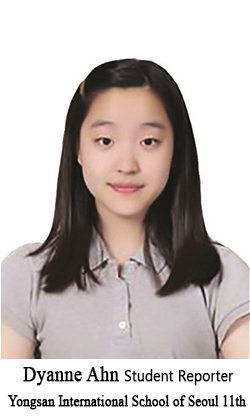 |
Flashy neon signs. Glaring advertisements. Endless city lights. All these sources of light illuminate our night city and make it difficult for us to even realize that it is dark.
However, artificial light pollution leads to sleep deprivation and memory loss.
Therefore, we should put effort to reduce light pollution and preserve the darkness of our night time.
What is light pollution? Light pollution is the presence of unwanted or artificial light in the night environment. There are three primary types of light pollution: light trespass, over-illumination, and skyglow. Light trespass arises when undesired light enters one’s living space, which causes problems like sleep deprivation. Over-illumination occurs when light is excessively used. For example, in America, approximately two million barrels of oil per day is wasted due to over-illumination. Finally, skyglow is the diffuse luminance of the night sky due to light that is emitted directly upward by luminaires or reflected from the ground.
These different types of light pollution pose adverse health effects to the human
body.
Most notably, light pollution affects the circadian rhythm and sleep patterns. Circadian rhythm is an internal biological process that regulates the sleep-wake cycle and repeats approximately every 24 hours. However, studies have demonstrated the damage of exposure to light upon the day-night cycle. This is because of the Suprachiasmatic Nucleus (SCN), which is a region of the brain that controls the circadian rhythm, receiving information in response to light exposure through incoming vision from the eyes. The perceived light during nighttime prevents the secretion of melatonin. Like so, the circadian rhythm will be delayed.
This results in disrupted sleep patterns such as inconsistent REM (rapid eye movement) sleep. REM sleep is crucial not only for the alertness of an individual on the next day but also for the stimulation of brain regions used in learning and memory formation.
Lack of sleep contributes to memory loss. REM sleep is known to preserve certain types of memories such as procedural memory, spatial memory, and emotional memory. In a REM sleep experimentation on rats deprivation inhibited memory consolidation especially regarding complex processes. Recent works through electrophysiological recording and optogenetic techniques established that neural activity during REM sleep is necessary for spatial and contextual memory consolidation. Specifically, REM is significant for learning procedures and new techniques of problem-solving, and its deprivation seemingly results in impaired declarative and long-term memory in complex situations.
Now the question is, what can we do to avert the consequences of light pollution upon our health? The first solution can be instigated at home. We can minimize the use of needless lights during the day and night by implementing automatic sensors or even manually turning off the light when it is unnecessary. Colored lights, such as yellow, red, and amber, are anti-glare but still serve the purpose of night lighting. These colored lights do not affect the nighttime vision compared to regular LED lights, so they will not be as damaging to the eye. Through this simple yet powerful initiative, we can build our efforts to decrease the effects of light pollution upon our own health and the community.
안다인 강남포스트 학생기자 webmaster@ignnews.kr
<저작권자 © 강남포스트, 무단 전재 및 재배포 금지>

 강남구, 반려견 순회 놀이터 운영
강남구, 반려견 순회 놀이터 운영


